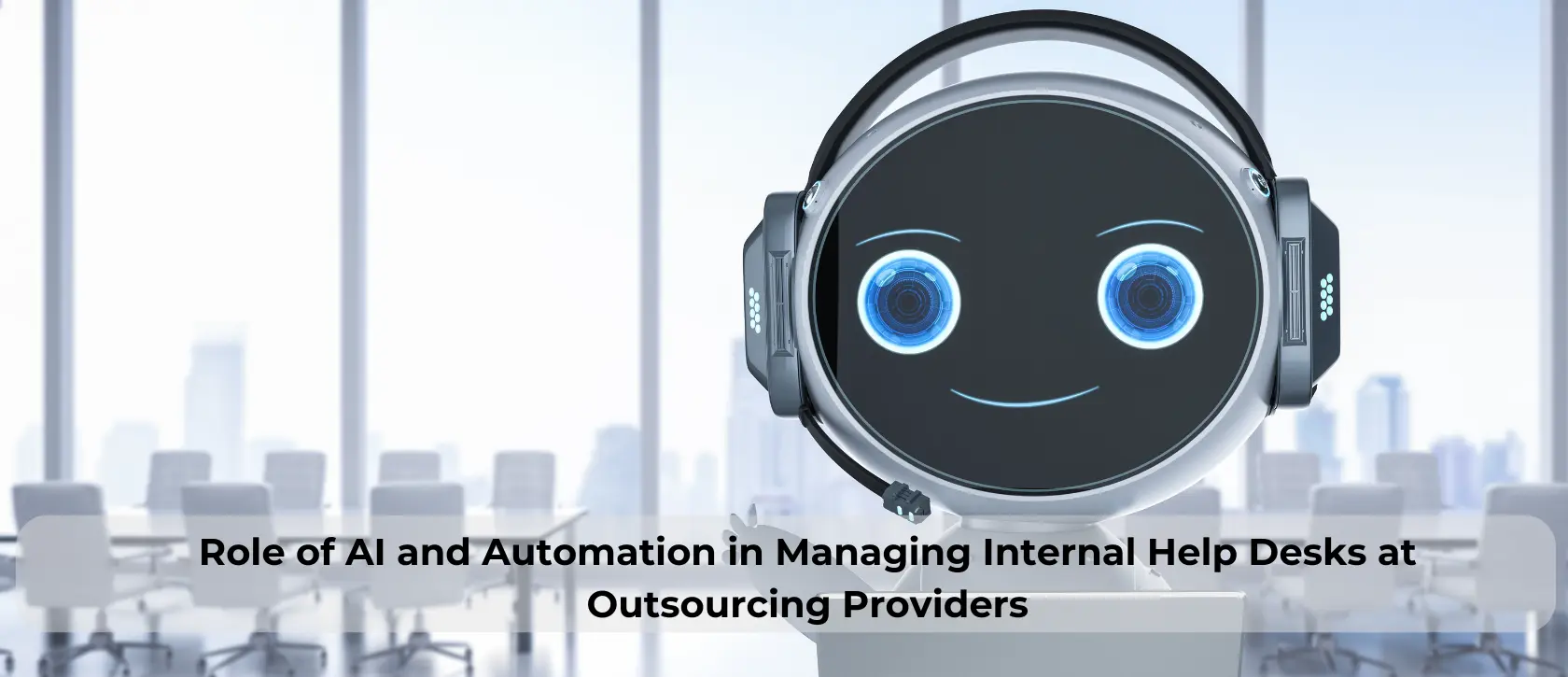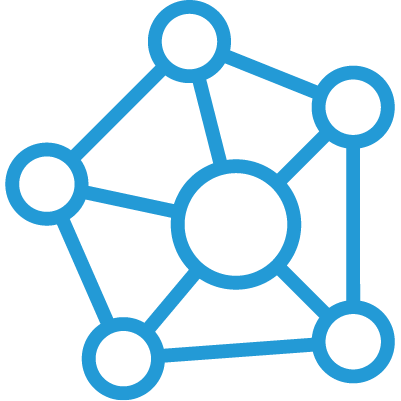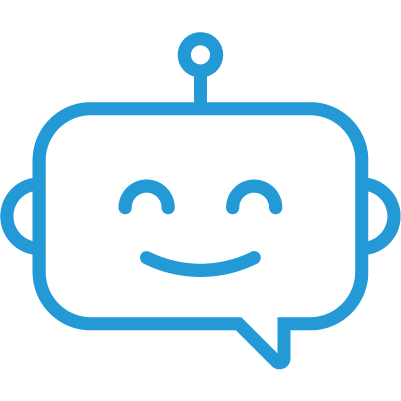
The Role of AI and Automation in Managing Internal Help Desks at Outsourcing Providers
The modern outsourcing industry, especially in the sector, is rapidly evolving with the integration of AI and automation. These technologies are transforming internal help desk operations, enhancing efficiency, reducing response times, and improving customer satisfaction. This blog explores how AI and automation are redefining help desk management at outsourcing providers and their various roles in contact center operations.
How AI and Automation Enhance BPO Help Desk Operations
AI and automation have significantly streamlined help desk operations in BPOs. Traditionally, help desk teams dealt with repetitive inquiries, high volumes of tickets, and often complex routing issues. The adoption of AI and automation tools has allowed outsourcing providers to handle these challenges more effectively by automating repetitive tasks, providing quicker responses, and improving accuracy.
For instance, AI-powered chatbots can instantly answer frequently asked questions, while automation tools efficiently categorize and route support tickets to the appropriate team members. This enhances productivity and ensures faster resolutions for clients, which is essential in maintaining high levels of satisfaction. Additionally, automation minimizes the potential for human error, ensuring that inquiries and requests are handled more accurately and consistently.
Roles of AI and Automation in Contact Center Help Desks
1. Automating Routine Inquiries
One of the most significant advantages of AI in help desks is the automation of routine inquiries. Simple requests, such as password resets or FAQs, can be handled by AI chatbots or automated systems without human intervention. This reduces the workload on help desk agents, allowing them to focus on more complex issues that require personalized attention.
By automating these mundane tasks, BPO providers can significantly improve response times and reduce operational costs. This ensures that customers get quick answers to common questions while allowing help desk agents to spend more time on tasks that add greater value.
2. 24/7 Support Availability
AI and automation enable BPO help desks to offer 24/7 support, regardless of human agent availability. Chatbots and automated systems can handle requests around the clock, ensuring that clients and customers have access to support even outside of normal business hours.
This continuous availability is particularly valuable for outsourcing providers that serve global clients in different time zones. By providing around-the-clock support, BPOs can meet client expectations for constant service and minimize downtime, which is critical in maintaining client satisfaction.
3. Implementation of AI-Powered Chatbots
AI-powered chatbots have revolutionized help desk operations by providing instant responses to customer inquiries. These chatbots are capable of understanding natural language, retrieving relevant information, and responding accurately to client questions.
The use of chatbots has drastically reduced the need for human intervention in simple cases, speeding up the resolution of tickets. They can also escalate more complex issues to human agents, ensuring that no inquiry goes unresolved. This not only enhances customer experience but also increases the efficiency of the internal help desk.
4. Real-Time Monitoring and Alerts
AI systems enable real-time monitoring of help desk operations, allowing BPO providers to identify potential issues before they escalate. Automated alerts are triggered when certain thresholds, such as response time delays or high ticket volumes, are reached.
This proactive monitoring helps ensure that help desk teams can address problems before they affect service levels. Real-time alerts also allow managers to monitor performance continuously, ensuring that operations are running smoothly and any bottlenecks are immediately addressed.
5. Predictive Analytics for Proactive Support
AI-powered predictive analytics allow BPO providers to anticipate potential problems and offer proactive support. By analyzing past inquiries and customer behavior patterns, AI can predict issues that are likely to arise in the future.
For example, if a certain type of issue has been frequently reported by clients, AI systems can alert the help desk team before the issue becomes widespread. This enables the team to prepare in advance and mitigate potential disruptions, leading to a smoother experience for both the client and the end customers.
6. Ticket Categorization and Routing
Automation plays a crucial role in categorizing and routing tickets to the appropriate agents. Instead of relying on manual intervention, AI systems can quickly analyze the content of incoming tickets and assign them to the most qualified team members.
This ensures that issues are addressed by agents with the right skill sets, leading to faster resolution times and higher first-contact resolution rates. Automated ticket routing also reduces the likelihood of miscommunication or delays, further enhancing help desk efficiency.
7. Self-Service Portals
AI and automation power self-service portals, allowing clients and employees to resolve issues on their own without having to contact the help desk directly. These portals provide knowledge bases, FAQs, and other resources that empower users to troubleshoot common problems.
Self-service options reduce the number of tickets submitted to the help desk, lightening the workload for agents and speeding up the resolution process for users. This not only improves user satisfaction but also reduces operational costs for the BPO provider.
8. Performance Metrics and Reporting
AI-driven systems provide detailed performance metrics and reporting, offering insights into help desk operations. Metrics such as average resolution time, ticket volume, and customer satisfaction scores are automatically tracked and analyzed.
These insights allow help desk managers to evaluate team performance, identify areas for improvement, and make data-driven decisions. Automation ensures that reports are generated consistently and accurately, giving management the tools they need to enhance overall help desk performance.
9. Learning and Adaptation
AI systems have the ability to learn and adapt over time, improving their responses based on past interactions. Machine learning algorithms analyze previous customer interactions to better understand context and intent, leading to more accurate responses.
This continuous learning process ensures that AI-powered help desks become more efficient and effective as they handle more inquiries. As the system learns from past interactions, it can provide increasingly personalized and relevant support to users.
10. Personalized User Experiences
AI and automation enable personalized user experiences by leveraging customer data to tailor responses and interactions. For example, AI systems can access past tickets, purchase history, or customer preferences to offer personalized solutions and recommendations.
This level of personalization enhances customer satisfaction by making users feel understood and valued. Personalized customer service fosters stronger relationships with each individual, making interactions more meaningful. AI-driven personalization also speeds up the resolution process by providing more accurate and contextually relevant support, improving the overall customer experience.
AI and automation have become indispensable tools for managing internal help desks at outsourcing providers. From automating routine tasks to offering 24/7 support and enhancing customer experiences with personalization, these technologies are driving efficiency and improving service levels. By integrating AI and automation into their help desk operations, BPO providers can reduce costs, improve response times, and offer higher levels of customer satisfaction, positioning themselves as leaders in the competitive outsourcing market.





